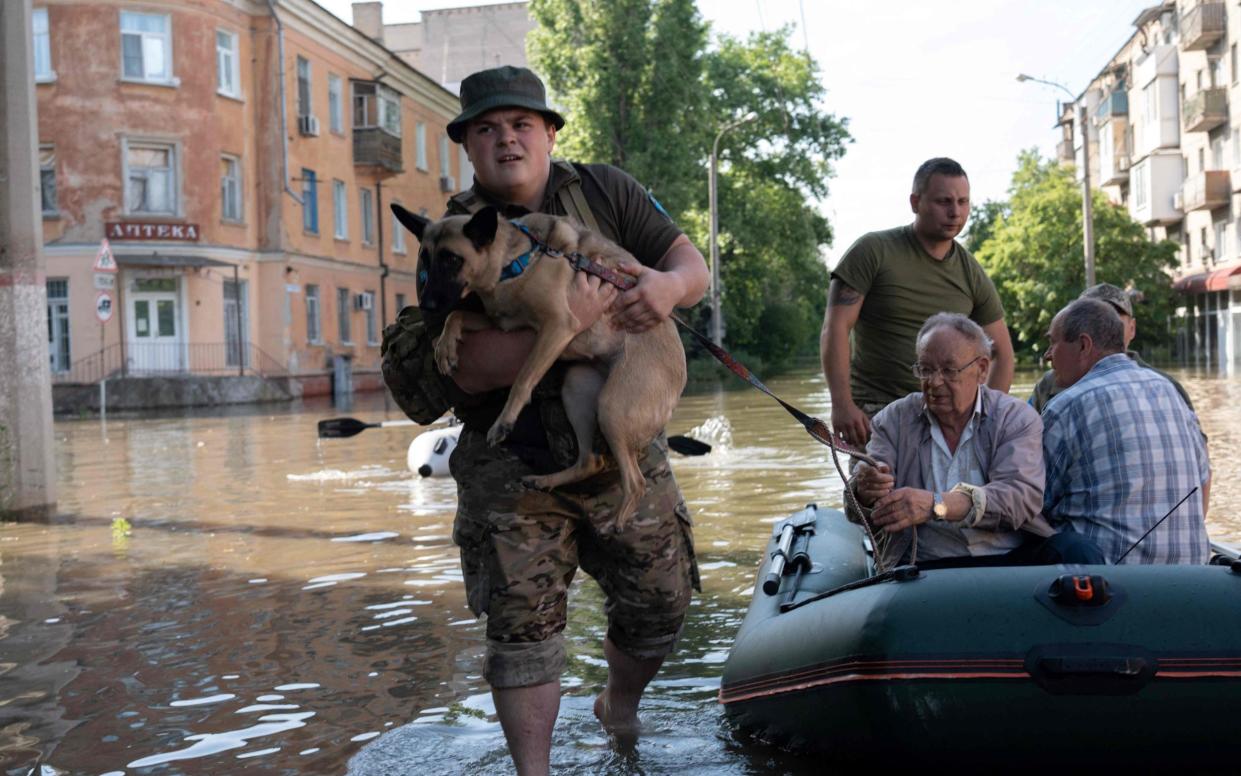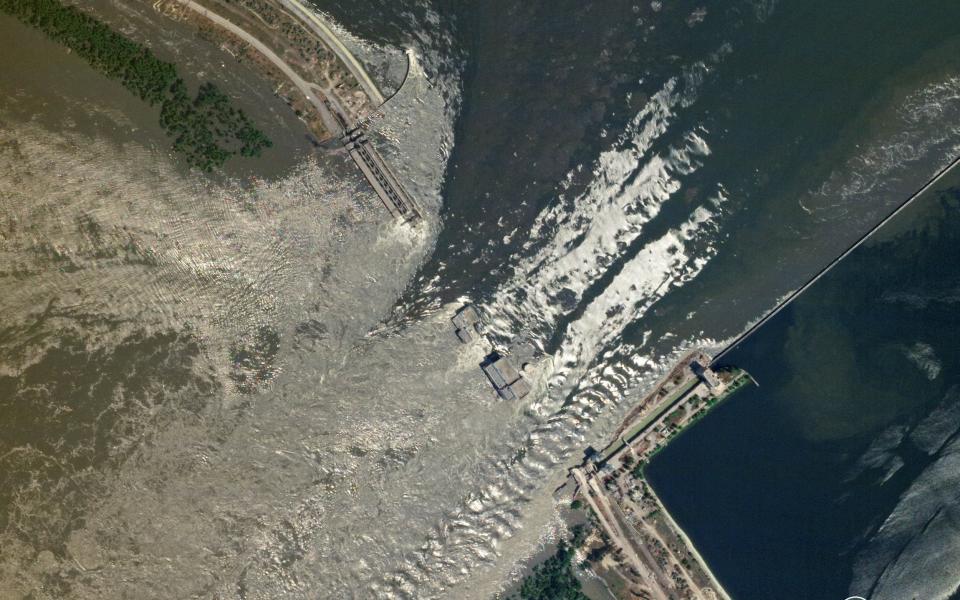Ukraine: The Latest - Kyiv warns of floating mines and disease after Kakhovka dam destruction

Today on Ukraine: The Latest, we discuss the latest updates from Kherson as flood waters rise, speak to charity workers active in the region, and bring you the latest reaction one day on from the destruction of the Nova Kakhovka dam.
Associate Editor Dominic Nicholls reports:
Ukraine’s Deputy Prime Minister Alexander was visiting the impacted area yesterday. He warned of the danger posed by floating mines. There is footage on social media showing an explosion in the water, which he said was a mine hitting some of the debris. He also warned of the spread of disease and hazardous chemicals.
I hold Russia responsible. I’ve not yet decided if I think it was deliberate military action or incompetence. That is irrelevant. I view them as responsible as it is the area they occupy. We must not let them bed in the narrative that there were unusually high water levels in the dam.
They held it. They’re responsible for its safe operation now. It suits them tactically for this to have happened as the strategic momentum is at the moment with Ukraine.
Yuriy Tokarski, CEO of U-Hearts Foundation, describes the situation on the ground:
The scale of the disaster is huge. We have at least 17,000 households who are directly affected and who need to be evacuated. In many of these households people kept domestic animals. One of the most common problems, unfortunately, is that many of dogs who were on the leash or on the chain in their kennels, drowned.
There are also a number of people who did not want to leave their homes. In many cases they were stuck in them. Their animals, their pets, are saving themselves on the roofs. And volunteers have to navigate in small boats and try to bring these animals to safety. So this is the situation that’s unfolding.
Olia Hercules, a London based author and chef from Kakhovka, describes the feeling amongst locals:
We’re going from feeling completely numb, to anger, to devastation. It’s just realising the suffering the people and animals are going through. Some places are lost forever; environment is damaged irreversibly. It’s hard to take.
Listen to Ukraine: the Latest, The Telegraph’s daily podcast, using the audio player at the top of this article or on Apple Podcasts, Spotify, or your favourite podcast app.

War in Ukraine is reshaping our world. Every weekday the Telegraph’s top journalists analyse the invasion from all angles - military, humanitarian, political, economic, historical - and tell you what you need to know to stay updated.
With over 30 million downloads, our Ukraine: The Latest podcast is your go-to source for all the latest analysis, live reaction and correspondents reporting on the ground. We have been broadcasting ever since the full-scale invasion began.
Ukraine: The Latest’s regular contributors are:
David Knowles
David is Head of Social Media at the Telegraph where he has worked for almost two years. Previously he worked for the World Economic Forum in Geneva. He speaks French.
Dominic Nicholls
Dom is Associate Editor (Defence) at the Telegraph having joined in 2018. He previously served for 23 years in the British Army, in tank and helicopter units. He had operational deployments in Iraq, Afghanistan and Northern Ireland.
Francis Dearnley
Francis is Assistant Comment Editor at the Telegraph. Prior to working as a journalist, he was Chief of Staff to the Chair of the Prime Minister’s Policy Board at the Houses of Parliament in London. He studied History at Cambridge University and on the podcast explores how the past shines a light on the latest diplomatic, political, and strategic developments.
They are also regularly joined by the Telegraph’s foreign correspondents around the world, including Joe Barnes (Brussels), Sophia Yan (China), Nataliya Vasilyeva (Russia), Roland Oliphant (Senior Reporter) and Colin Freeman (Reporter). In London, Venetia Rainey (Weekend Foreign Editor), Katie O’Neill (Assistant Foreign Editor), and Verity Bowman (News Reporter) also frequently appear to offer updates.

 Yahoo News
Yahoo News 
